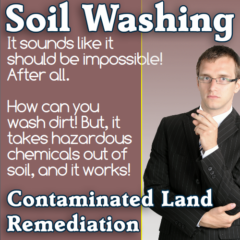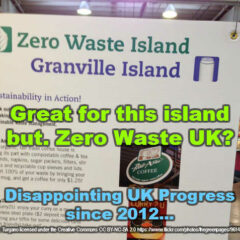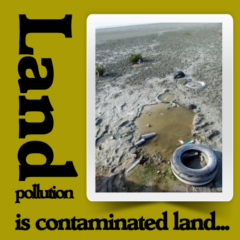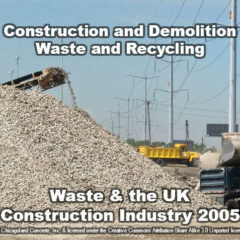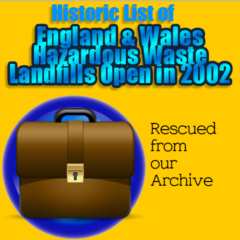hazardous waste
Soil Washing Treatment of Contaminated Land
Soil washing has become an important method for cleaning up contaminated land. It was first propelled into the mainstream as a process for this purpose in the UK in 2004. The reason for this was that the summer of 2004 saw the implementation of EU Landfill Directive requirements in the UK. The implementation of EU […]
Zero Waste and UK Recycling Progress
Landfills vary immensely, but even the most recently developed are not considered to provide a sustainable way of getting rid of rubbish. They can cause pollution, and certainly hold the potential to do so. Very few of us want to live near to them, and the methane gas produced by them is a major contributor […]
What is Land Pollution?
We have been asked “What is Land Pollution”, quite a few times recently so we wrote this article. Land pollution (pollution of land) is a serious issue in many locations around the world, it is caused in a variety of ways, and varies greatly in its severity. When it is caused by industrial activities it […]
Construction and Demolition Waste and Recycling
In tonnage terms construction and demolition waste is the UK’s largest waste stream accounting for 90 Million tonnes of material per year in England and Wales alone. To drive the recovery of demolition material and the use of recycled materials in new structures, ICE, working with London Remade and Envirocentre has developed the Demolition Protocol […]
What is Waste WAMITAB Hazardous Waste and WEEE?
Q: What is waste? A: Waste is defined for the propose of the UK Waste Management Regulations as: Any substance or object that you discard, intend to discard, or are required to discard is waste and as such is subject to a number of regulatory requirements. Even if material is sent for recycling or undergoes […]
Waste Decomposition – Sanitary Landfills a 1,000 Year Liability
Government Sponsored Research Shows Slow Waste Decomposition Means Landfills Present 1000 Year Liability (This article is based upon one which we first wrote for this website in 2004. The issues raised remain largely un-addressed and we think that they are as pertinent today as they were at the time.) Research published in September 2004, which was […]
